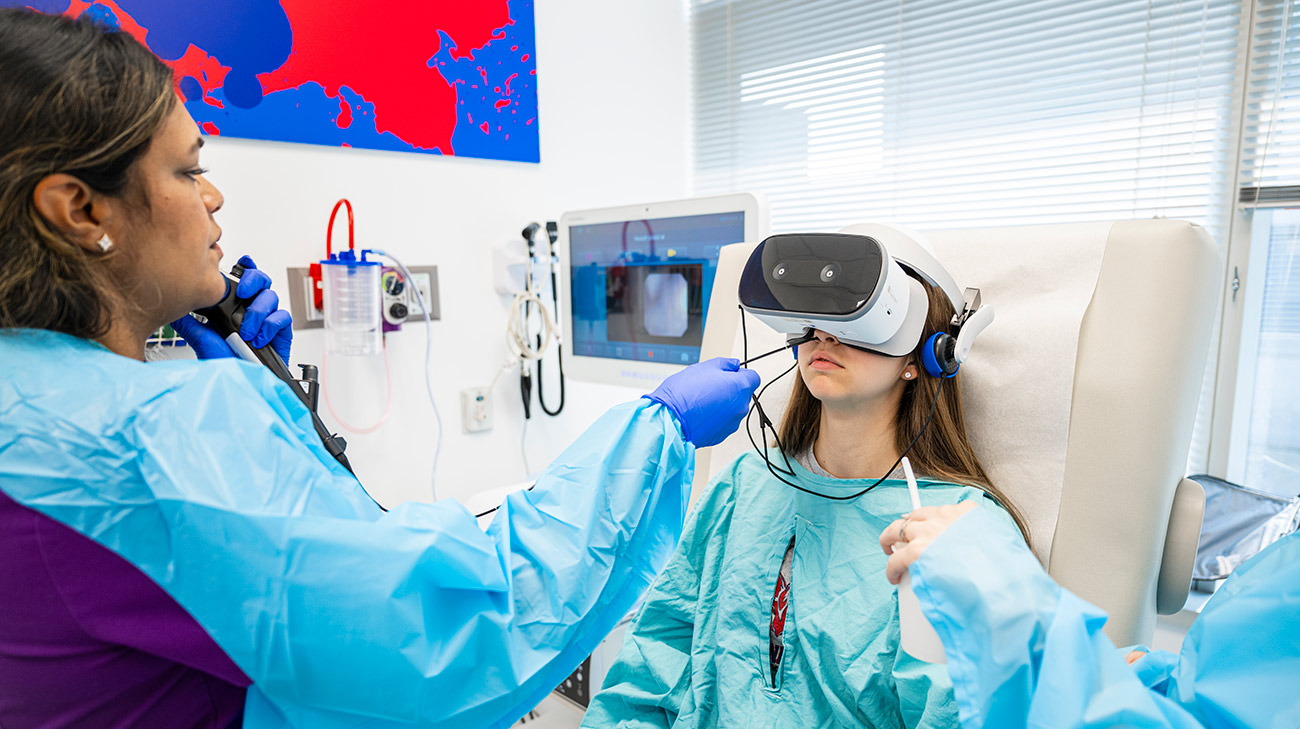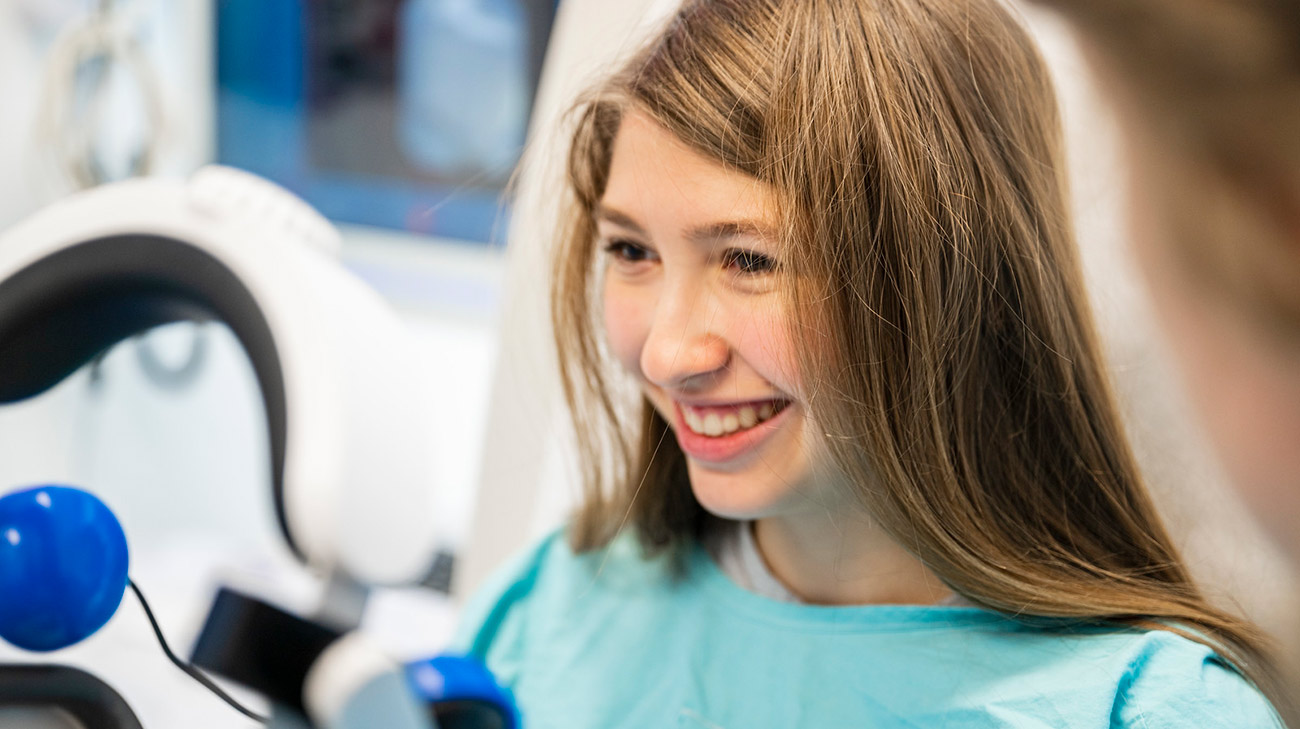
18-year-old Grace Pauley is a busy teenager with big plans. She’s a talented musician who plays piano and violin, she’s getting ready for college, and looking forward to prom. She’s not letting her health concerns get in her way.
Grace has been living with stomach and swallowing issues since she was a toddler. After many visits to specialists and extensive testing, Grace was diagnosed with food allergies and another chronic condition.
An upper endoscopy showed that Grace had scar tissue in her esophagus, diagnosed as eosinophilic esophagitis (EOE), an inflammation of the esophagus caused by an overabundance of certain white blood cells. Food allergies are thought to be one cause of the condition.
“I thought my symptoms like difficulty swallowing or food getting stuck were normal because I’d always had them,” says Grace.
Doctors began medical treatment that included antacids and steroids. They also introduced a six-food elimination diet that included wheat, dairy, eggs, soy, peanuts/tree nuts and shellfish/fish.
In 2021, the Pauley’s began coming to the EOE clinic at Cleveland Clinic Children’s, with care provided by a multidisciplinary team including co-director of the center, gastroenterologist Sophia Patel, MD, child life specialists, dietitians and others.
“We eliminate foods one at a time, then slowly bring them back into the diet to try to figure out which are the biggest triggers,” says Dr. Patel.
Because typical allergy tests like skin pricks or blood tests aren’t effective in finding the problem foods responsible for EOE, patients require more biopsy and endoscopic examinations.
And Grace was terrified of those exams.

Grace wearing a virtual reality headset during her endoscopy procedure.
“It was a crazy big deal. I couldn’t eat the night before, had to arrive hours early for prep, have an IV and anesthesia,” says Grace. “I don’t remember the actual scope itself, but the recovery was difficult as well. I’d be out of it for a day or two afterward, and sometimes had fevers, difficulty breathing, a bad cough or lack of energy.”
According to her mom, Katrina Pauley, Grace would typically miss at least two or three days of school, sometimes more.
“Because sedated endoscopy is very invasive and can be anxiety inducing, a new procedure called transnasal endoscopy has major benefits, especially for younger patients,” says Dr. Patel.
Introduced at Cleveland Clinic in 2023, Grace was one of the first pediatric patients to undergo the less invasive procedure that does not require sedation.
“It’s been life-changing, allowing us to add foods back in and more easily monitor how they affect Grace, who no longer worries when she has to come for testing,” says Mrs. Pauley.
On the days they come to Cleveland Clinic Children’s for a transnasal endoscopy, Grace now just skips breakfast, and the much simpler prep involves a numbing spray in her nose and throat.

Grace smiling after a successful endoscopy procedure.
“I was worried before having this test the first time, but it’s much simpler than I expected,” says Grace, who credits the child life specialists and Dr. Patel for helping to put her at ease by answering her questions, providing fidget toys, playing music of her choice – sometimes Taylor Swift, other times jazz standards – and the use of virtual reality goggles that help her focus on something else.
The procedure takes about 10 minutes, and while there may be some minor pain from the tube and biopsies, Grace is able to go about her day. And these days, that includes auditioning on piano and violin for college applications, and shopping with her mom for a prom dress!
Related Institutes: Cleveland Clinic Children's

